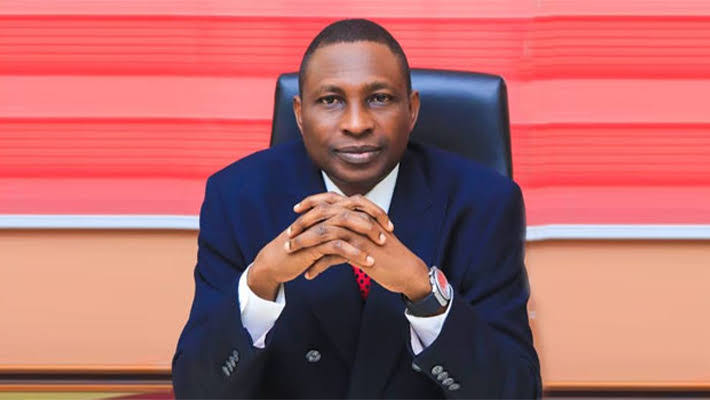The Tinubu that I know is a thinker, and a doer, time to resolve this Nigerian security issues
– Abayomi Odunowo
In the wake of the escalating violence and insecurity in Nigeria, finding a permanent solution to the menace posed by kidnapping, bandits, and Boko Haram has been a top priority for the government and the people of Nigeria. After my recent write-up on this dire issue, I was privileged to be invited by some high-ranking generals, who shared with me some honest insights into how we can permanently solve this problem. One of the key takeaways from that meeting was the unwavering commitment of President Bola Tinubu to finding lasting solutions to the security challenges facing the nation, and in reality the bulk stops on his table.
The first piece of advice I received from the generals was quite controversial but thought-provoking – the need to remove all local and international media from the theatre of the conflict. The rationale behind this suggestion was that many media organizations have been compromised and are disloyal to the country. By removing them from the conflict zone, it would be easier for the military to carry out its operations without the risk of sensitive information being leaked to the enemy.
Furthermore, the generals advised that all non-governmental organizations (NGOs), both local and international, should also leave the theatre of conflict. It was revealed that some of these organizations have been implicated in the funding and procurement of arms and ammunition for the insurgents. By removing them from the conflict zone, it would disrupt their ability to support the enemy and contribute to the violence and instability.
The next piece of advice was more humanitarian in nature – the call for all law-abiding citizens to relocate to safer areas within Nigeria within the next month. This would ensure the safety and well-being of innocent civilians while the military carries out its operations to restore peace and security to the troubled regions.
In addition to this, the generals proposed a six-month safe passage window for repentant individuals to surrender and submit their weapons and ammunition. Those who take advantage of this window would be granted adequate compensation and the opportunity to reintegrate into society as law-abiding citizens. This approach would encourage individuals involved in the conflict to lay down their arms and embrace peace, thereby reducing the strength of the insurgent groups.
Following the expiration of the safe passage window, the military would then surround the entire conflict zone and commence with a six-month continuous bombardment campaign. This aggressive military action aims to incapacitate and eliminate the insurgent groups, paving the way for a lasting peace in the region.
Finally, once the bombardment campaign is concluded, the military would move in to clear the entire area as necessary, effectively neutralizing the threat posed by the insurgent groups. This comprehensive approach to resolving the insecurity in Nigeria demonstrates the commitment of the government and the armed forces to ensuring the safety and security of its citizens.
The insights shared with me by the esteemed generals shed light on an ambitious yet practical plan to permanently address the security challenges facing Nigeria. President Bola Tinubu’s dedication to finding a lasting solution to these issues is evident in the proposed course of action. While the plan may be controversial and may face opposition, it represents a determined effort to restore peace and stability to the troubled regions of the country. Like they say this approaches have been used successfully in countries that had internal security challenges worst than Nigeria. With a strong commitment to this course of action, it is possible to overcome the security challenges and create a safer, more secure Nigeria for future generations.
I was also reliably informed that a comprehensive report was submitted to President Buhari before they were retired. This information came as a shock to me, as it indicated that the Nigerian government had access to crucial intelligence on the ongoing conflict with Islamist insurgencies, including Boko Haram and Islamic State’s West Africa Province, long before the situation escalated to its current devastating levels.
The fact that this report was submitted to President Buhari before the retirement of certain individuals suggests that the government was aware of the gravity of the situation and had ample time to take decisive action. However, it appears that this information was not acted upon, leading to continued suffering and loss of life for countless Nigerians.
As of the end of 2020, the conflict with Islamist insurgencies in Nigeria has resulted in the deaths of nearly 350,000 people, with children younger than five accounting for more than nine out of 10 of those killed. The United Nations Development Programme (UNDP) reported that 170 children die every day as a result of the conflict. These statistics are heartbreaking and underscore the urgent need for effective intervention to bring an end to the violence and protect the lives of innocent civilians.
The impact of the conflict is particularly severe in northeast and north central Nigeria, with the estimated population of North East Nigeria is about 26 million people, around 12% of the total population of the country. The North Central region has a population of about 20 million people, around 11% of the total population of the country. The total estimate of 46 million people that live in areas affected by the insurgency. These figures are based on the 2020 population of Nigeria, which was 206.14 million people, with a projected population of 262.9 million in 2030 and 401.3 million in 2050.
The pervasive nature of the violence has resulted in widespread displacement, food insecurity, and limited access to healthcare and education. The humanitarian crisis in these regions demands immediate attention and concerted efforts to address the root causes of the conflict and provide vital support to those affected.
The current status of the insurgency in Nigeria involves multiple security threats across the country, with ongoing violence by Boko Haram and the Islamic State in West Africa (ISWA) in the northern regions, as well as the Biafra separatist rebellion in the southeast. The complex nature of these security threats requires a multifaceted approach that addresses the underlying grievances fueling these insurgencies while also prioritizing the protection and well-being of civilians.
While the submission of a comprehensive report to President Buhari before the retirement of certain individuals is a significant development, it is essential that this information is not overlooked or dismissed. The government must take meaningful and decisive action to address the root causes of the conflict and prioritize the protection of civilians. The lives of countless Nigerians are at stake, and the continued suffering and loss of life demand a swift and effective response.
It is imperative that the government utilizes the information contained in the comprehensive report to inform its policies and strategies for addressing the insurgency in Nigeria. Moreover, there must be accountability for any failure to act upon this critical intelligence, as the lives of Nigerians depend on the government’s ability to protect and safeguard their well-being.
In conclusion, the submission of a comprehensive report to President Buhari before the retirement of certain individuals highlights the urgency and gravity of the situation regarding the conflict with Islamist insurgencies in Nigeria. The government must act decisively to address the root causes of the conflict and protect the lives of innocent civilians. The lives of countless Nigerians are at stake, and the government must prioritize the well-being and safety of its citizens.
Otunba Abdulfalil Abayomi Odunowo.
National Chairman AATSG
23rd January, 2024.



